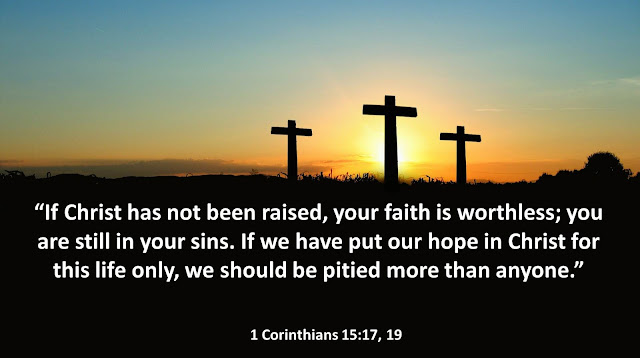Introduction- Why Is Jesus' Resurrection So Important?
Those who have followed this blog know that I focus a lot of my writing on defending the compatibility of science with the Christian worldview and that I spend much energy addressing philosophical and logical challenges to some of the finer details of Christian theology that skeptics offer as defeaters for the Christian worldview. However, it is important to remember that the truth of the Christian worldview rests on one, single historical event: the resurrection of Jesus Christ. If Christ has not been raised, then none of the other details of the Christian worldview matter. The Apostle Paul made this very clear in 1 Corinthians 15:While finding answers to the finer points of the Christian worldview can be difficult, if Christ has been raised, then there are answers to every scientific, philosophical, and experiential challenge. Even if we may not know all those answers at any given point in time and even if the answers are different from what we envision or desire, if Christ has been raised, Christianity is true, and we can work out the finer scientific, philosophical, and experiential details later. So, it is important that all skeptics and Christians deal with and be made aware of the evidence for this essential historical event.
In today's post my goal is not to be comprehensive with the evidence for the Resurrection but to give the skeptic some videos and other resources to begin seriously looking at this claim and to make the Christian aware of resources that they can have to "always be prepared to give a reason for the hope that they have" (1 Peter 3:15).



